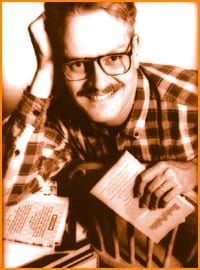Surrey’s most prominent gay kindergarten teacher has already circled Jun 3 on his calendar, and he’s hoping other queers and anti-censorship activists will do the same.
That’s the day Surrey school board trustees are meeting to reconsider three gay-friendly children’s books that they and their predecessors banned six years ago. They’re expected to announce their decision Jun 12.
The case began in 1997, when James Chamberlain asked the board to approve three storybooks featuring same-sex families for use in his kindergarten classroom. The board refused, citing some parents’ religious concerns about discussing homosexuality with their children.
But Chamberlain and his supporters refused to give up. Instead, they took the school board to court-and won.
The board erred in basing its decision on religious considerations, BC Supreme Court Justice Mary Saunders ruled in 1998.
According to the BC School Act, public schools are supposed to be secular, Saunders explained. They’re also supposed to “adhere to a high moral line,” she added, before sending the decision back to the board.
But the victory didn’t last long.
Justice Kenneth Mackenzie of the BC Court of Appeal overturned Saunders’ decision two years later.
At the time, Mackenzie (who has since ruled in favour of same-sex marriage) said the board had every right to ban the books because they are contentious.
He suggested the books be kept in school libraries so teachers could use them “on an incidental basis”-after checking with administrators, parents and colleagues to make sure it’s a good idea.
Chamberlain and his supporters appealed again, this time to the Supreme Court of Canada. And the highest court in the country backed them up.
“I was elated,” Chamberlain says, recalling the moment the court announced its decision last December. “For them to reject every argument the Surrey school board could muster-that was a pretty good feeling after all this time.”
Like Justice Saunders before her, Chief Justice Beverley McLachlin found the school board violated the secular nature of BC’s School Act when it based its decision on religious concerns.
The board used the wrong criteria to evaluate those books, McLachlin ruled. It should have judged the books using the same curriculum-based criteria it applies to all other potential books.
Trustees are supposed to evaluate proposed books based on the contribution they could make to students’ learning, the quality of their storytelling, their nice illustrations, their use of good grammar and other such considerations-not the fact that they mention same-sex families.
“The board was not permitted to reject the books simply because certain parents found the relationships depicted in them controversial or objectionable,” McLachlin ruled.
Nor was she swayed by the trustees’ argument that five-year-olds are too young to hear about same-sex families. “Tolerance is always age appropriate,” McLachlin wrote, before she, too, sent the decision back to the school board for reconsideration.
Chamberlain won’t predict how the trustees will vote Jun 12, but he expects them to base their decision on the correct criteria this time. “If you ban a book because of your personal views, it can’t be curricularly justified,” he warns.
The chair of the Surrey school board won’t say how she’s planning to vote-but it won’t be based on the books’ same-sex topic itself, she promises.
The Supreme Court of Canada has already decided that question, Mary Polak explains; same-sex families are an appropriate topic for kindergarten and Grade 1 students.
In preparation for the upcoming vote, Polak has been poring over four two-inch binders full of book evaluation guidelines. There is still so much to consider here, she says, hinting that the books still might not get approved.
But the board has never expressed any concerns about the books’ style and story-telling qualities before, Chamberlain points out. They’ve never said the reading level is too hard or anything like that. All they’ve ever objected to is the same-sex topic.
And that topic is just as necessary today as it was six years ago, Chamberlain continues. Surrey kindergarten teachers still don’t have any books they can use to show their students positive images of same-sex families.
That’s why he’s hoping the Surrey trustees will come through this time and allow him to read stories about same-sex families in the classroom.
He’s also hoping gays and lesbians, and other anti-censorship activists, will come to the Jun 3 meeting and tell the board what they think.
“Anyone who believes in freedom to read and opposes censorship should be there,” Chamberlain says. “The more people that are in support, the better. I’m sure it will be an exciting meeting.”
Polak encourages everyone who would like participate to call the school board office and reserve their spot on the speakers’ list.
“This is not a case about three innocuous little books,” she readily admits. “This is a case where people are trying to work out the terms of our mutual co-existence.”
Asked for a final hint on how the board will vote, Polak again says she can’t say. “I don’t even know. I won’t know until we get to that night and the hands are raised.”
TO REGISTER YOUR DELEGATION CALL SURREY SCHOOL BOARD.
604.596.7733

 Why you can trust Xtra
Why you can trust Xtra


